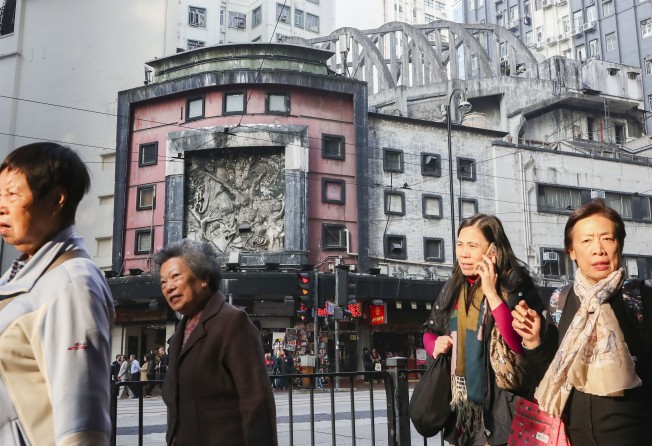Historic Hong Kong theatre is part of citizens’ collective memory

I agree with conservationists who want to see a historic theatre in North Point spared demolition (“Conservationists urge change to save old theatre”, December 11).
The Empire Theatre opened in December 1952. It is now used as a snooker hall, but in its heyday it hosted many top performers and is “one of the last post-war stand-alone theatre structures in the city and the only building with an iconic flying buttress”.
This theatre is an important part of Hongkongers’ collective memory, especially those from older generations who remember it as a successful theatre.
There are few old theatres left anywhere in Hong Kong. We have lost so many, just as we have seen other historic buildings demolished that could have been preserved.
Over the last few decades, the needs of property developers have been paramount.
They have been able to get so many heritage sites destroyed, so that a new high-rise office or residential estate could be constructed.
I appreciate that new flats are needed and they enhance the quality of people’s lives, but heritage conservation is important, and remaining old buildings that are historically important should be preserved.
Even if it can no longer function as a theatre, I am sure a useful role could be found for it, but not as a snooker hall. This happened successfully with projects such as Mei Ho House in Shek Kip Mei (former housing estate) and Lui Seng Chun in Mong Kok (tong lau turned into Chinese medicine centre).
We need appropriate legislation that gives far greater protection to heritage buildings facing the threat of demolition.
Tougher laws will impose the necessary constraints on those developers who fail to recognise the importance of conservation for what is left of Hong Kong’s past.
Jordan Chan Wai-tsun, Tseung Kwan O